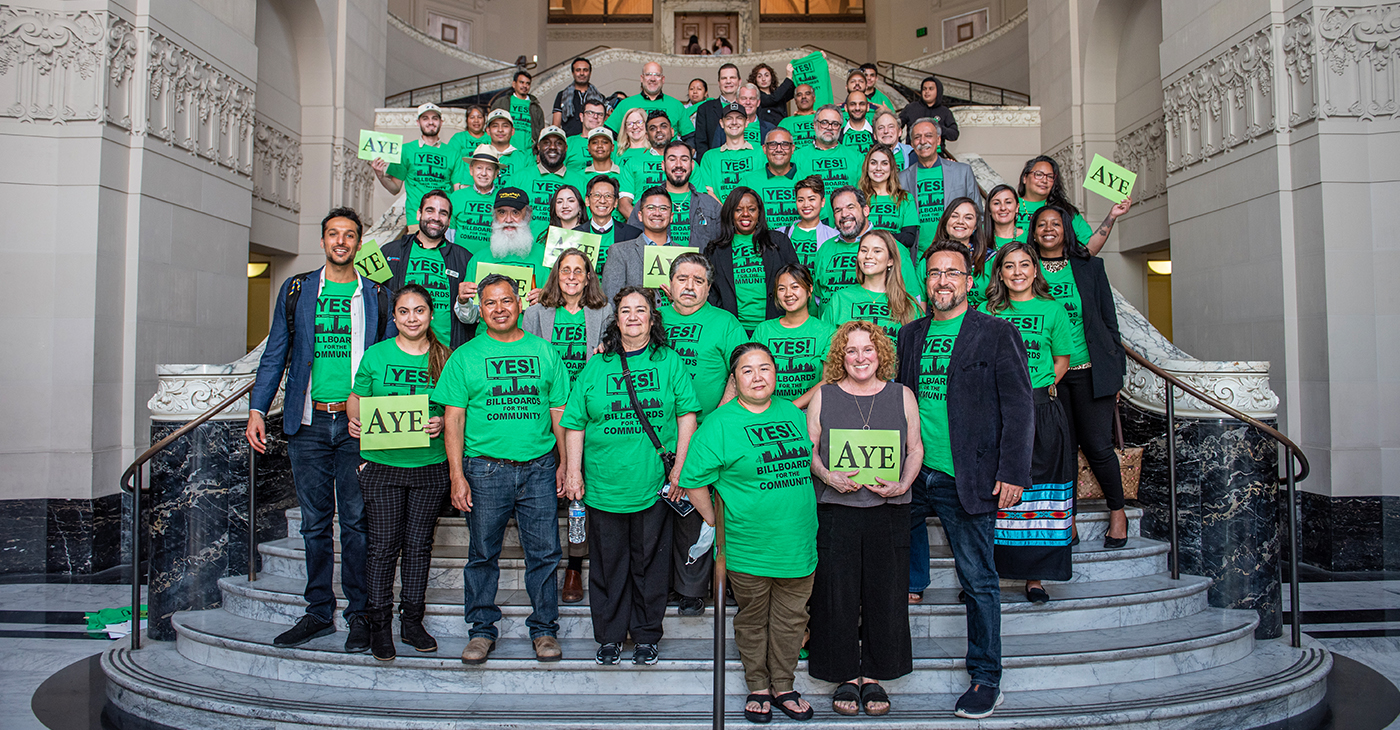Activism
COMMENTARY: The Fight to Save Affirmative Action for All of Us
These are the folks within our community who have been used by a white anti-civil rights activist named Ed Blum in an attempt to topple this thing in society that has allowed previous generations of not just Asian Americans, but all people of color, and women, and anyone else who has been qualified, to break through the color barriers in life. They just needed that benevolent boost we’ve known as “affirmative action.”

By Emil Guillermo
Don’t think for a second that Asian Americans are rooting to end affirmative action.
You might get that impression as the Supreme Court heard two cases concerning the use of race in college admissions at Harvard and the University of North Carolina.
The Harvard case in particular has Asian American plaintiffs represented by a group called Students for Fair Admissions, or SFFA.
Don’t be misled. The group isn’t representative of Asian Americans at all. They’re a minority within a minority. National polling data of Asian American voters show that nearly two-thirds actually support affirmative action.
What you’re witnessing is a classic “divide and conquer” strategy, where some Asian Americans are being used by a white anti-civil rights activist named Ed Blum, who has dedicated his life to upending diversity and race equity in society from voting rights to higher ed.
And now it looks like his time has come.
Remember, conservatives aren’t automatically against affirmative action. The late Justice Sandra Day O’Conner wasn’t—totally. To the court’s credit, it’s always allowed for race to be addressed within reason. No quotas, of course. But race has always been allowed as a factor.
Then came 2012, the Fisher v. Texas case, where Blum hand-held a white female plaintiff in an attempt to destroy the use of race in admissions at the University of Texas. It didn’t work, but Blum learned a lesson.
He realized he didn’t have a perfect victim. That was clear when even Antonin Scalia wondered aloud what the damage was to the white Fisher when she was not able to gain admission in a process where she had to compete fairly against people of color.
Indeed, what was the harm? The cost of the application fee?
So, this time, Blum found aggrieved rejections from Harvard and UNC on the internet. And he found a large group of plaintiffs among a new generation of Asian Americans immigrants from the 1990s and after, or rather their sons and daughters.
They were the ones who never quite understood why their little darlings with the straight A’s and perfect scores would be rejected from Harvard.
They have enabled Blum’s yellow-faced attack against affirmative action.
It’s created a civil war between Asian Americans, only the Mason/Dixon line is the year of your family’s immigration. 1980s? ’90s? 2000s?
These are the folks within our community who have been used by Blum in an attempt to topple this thing in society that has allowed previous generations of not just Asian Americans, but all people of color, and women, and anyone else who has been qualified, to break through the color barriers in life.
They just needed that benevolent boost we’ve known as “affirmative action.”
It’s impossible to say exactly how the court will come down on the Harvard and UNC cases. You can’t really tell by the questions asked by the justices.
Clarence Thomas took a swing at UNC by questioning the educational value of diversity.
“I didn’t go to racially diverse schools, but there were educational benefits,” he said. “And I’d like you to tell me expressly when a parent sends a kid to college, that they don’t necessarily send them there to have fun or feel good or anything like that; they send them there to learn physics or chemistry or whatever their study. So, tell me what the educational benefits are.”
North Carolina Solicitor General Ryan Park, arguing for UNC, spoke of the benefits of racial diverse environments, but not to Thomas’ satisfaction. “Well, I guess I don’t put much stock in that because I’ve heard similar arguments in favor of segregation, too.”
Thomas would be indicative of the hardline conservative attitude.
But the court’s first African American female was there, too. Associate Justice Ketanji Brown Jackson questioned the SFFA attorney about the harm the race conscious approach had in admissions. The SFFA attorney couldn’t speak to any significant harm and admitted that even whites benefitted from the system now in place.
So, why even bother with the plaintiff’s SCOTUS appeal if the lower courts have already decided Harvard and UNC’s programs weren’t discriminatory?
Well, the only thing that’s changed is the six solid, unyielding conservative justices in the high court.
You saw what they did to abortion. Would they do the same thing to affirmative action?
In a heartbeat.
That’s what worries people. A decision is expected in 2023. I’m being optimistic while I still can. Affirmative action has been a considerable tool to fight racism. Without it there’d be no BIPOC middle class.
So, what’s the ultimate way to beat a court hell-bent on playing politics?
Emil Guillermo is a journalist and commentator. He does a webshow on www.amok.com
Activism
Oakland Post: Week of July 24 – 30, 2024
The printed Weekly Edition of the Oakland Post: Week of July 24 – 30, 2024

To enlarge your view of this issue, use the slider, magnifying glass icon or full page icon in the lower right corner of the browser window. ![]()
Activism
Oakland Post: Week of July 17 -23, 2024
The printed Weekly Edition of the Oakland Post: Week of July 17 -23, 2024

To enlarge your view of this issue, use the slider, magnifying glass icon or full page icon in the lower right corner of the browser window. ![]()
Activism
Community Celebrates Historic Oakland Billboard Agreements
We, the Oakland Billboard Economic Development Coalition, which includes Oakland’s six leading community health clinics, all ethnic chambers of commerce, and top community-based economic development organizations – celebrate the historic billboard agreements approved last year by the Oakland City Council. We have fought for this opportunity against the billboard monopoly, against Clear Channel, for five years. The agreements approved by Council set the bar for community benefits – nearly $70 Million over their lifetime, more than 23 times the total paid by all previous Clear Channel relocation agreements in Oakland combined.

Grand Jury Report Incorrect – Council & Community Benefit
We, the Oakland Billboard Economic Development Coalition, which includes Oakland’s six leading community health clinics, all ethnic chambers of commerce, and top community-based economic development organizations – celebrate the historic billboard agreements approved last year by the Oakland City Council. We have fought for this opportunity against the billboard monopoly, against Clear Channel, for five years. The agreements approved by Council set the bar for community benefits – nearly $70 Million over their lifetime, more than 23 times the total paid by all previous Clear Channel relocation agreements in Oakland combined.
Unfortunately, a recent flawed Grand Jury report got it wrong, so we feel compelled to correct the record:
- Regarding the claim that the decision was made hastily, the report itself belies that claim. The process was five years in the making, with two and a half years from the first City Council hearing to the final vote. Along the way, as the report describes, there were multiple Planning Commission hearings, public stakeholder outreach meetings, a Council Committee meeting, and then a vote by the full Council. Not only was this not hasty, it had far more scrutiny than any of the previous relocation agreements approved by the City with Clear Channel, all of which provide 1/23 of the benefits of the Becker/OFI agreements approved by the Council.
- More importantly, the agreements will actually bring millions to the City and community, nearly $70M to be exact, 23 times the previous Clear Channel relocation agreements combined. They certainly will not cost the city money, especially since nothing would have been on the table at all if our Coalition had not been fighting for it. Right before the decisive City Council Committee hearing, in the final weeks before the full Council vote, there was a hastily submitted last-minute “proposal” by Clear Channel that was debunked as based on non-legal and non-economically viable sites, and relying entirely on the endorsement of a consultant that boasts Clear Channel as their biggest client and whose decisions map to Clear Channel’s monopolistic interests all over the country. Some City staff believed these unrealistic numbers based on false premises, and, since they only interviewed City staff, the Grand Jury report reiterated this misinformation, but it was just part of Clear Channel’s tried and true monopolistic practices of seeking to derail agreements that actually set the new standard for billboard community benefits. Furthermore, our proposals are not mutually exclusive – if Clear Channel’s proposal was real, why had they not brought it forward previously? Why have they not brought it forward since? Because it was not a real proposal – it was nothing but smoke and mirrors, as the Clear Channel’s former Vice President stated publicly at Council.
Speaking on behalf of the community health clinics that are the primary beneficiaries of the billboard funding, La Clinica de la Raza CEO Jane Garcia, states: “In this case, the City Council did the right thing – listening to the community that fought for five years to create this opportunity that is offering the City and community more than twenty times what previous billboard relocation agreements have offered.”
Oakland Billboard Economic Development Coalition
| Native American Health Center | La Clínica de la Raza | West Oakland Health Center |
| Asian Health Services | Oakland LGBTQ Center | Roots Community Health Center |
| The Unity Council | Black Cultural Zone | Visit Oakland |
| Oakland African American Chamber of Commerce | Oakland Chinatown Chamber of Commerce | Oakland Vietnamese Chamber of Commerce |
| Oakland Latino Chamber of Commerce | Building Trades of Alameda County | (partial list) |
-

 Arts and Culture3 weeks ago
Arts and Culture3 weeks agoRooted in Tradition: The Intricate History of Black Hair Braiding
-

 Bay Area4 weeks ago
Bay Area4 weeks ago“I Will Not Be Bullied,” Says Oakland Mayor Sheng Thao
-

 Bay Area2 weeks ago
Bay Area2 weeks agoPG&E Increases Rates While Bay Area Households Are Struggling to Stay Afloat
-

 Business3 weeks ago
Business3 weeks agoGov Newsom: Raising Fast Food Minimum Wage to $20 Pays Off as Jobs Multiply in Industry
-

 Activism4 weeks ago
Activism4 weeks agoOpponents of Mayor Sheng Thao Are Calling on Her to Resign Following FBI Raid
-

 Bay Area2 weeks ago
Bay Area2 weeks agoJuneteenth Mass Shooting Suspect Charge with Multiple Counts of Felony Assault by Alameda County DA Pamela Price
-

 Community1 week ago
Community1 week agoHundreds Come to Jehovah’s Witnesses’ Assembly Hall for Three-Day Program of ‘Good News’ in Fremont
-

 Activism4 weeks ago
Activism4 weeks agoOakland Coliseum Sale to AASEG: A Model for Community Development and Inclusion






















































